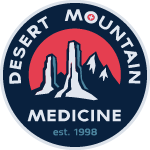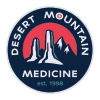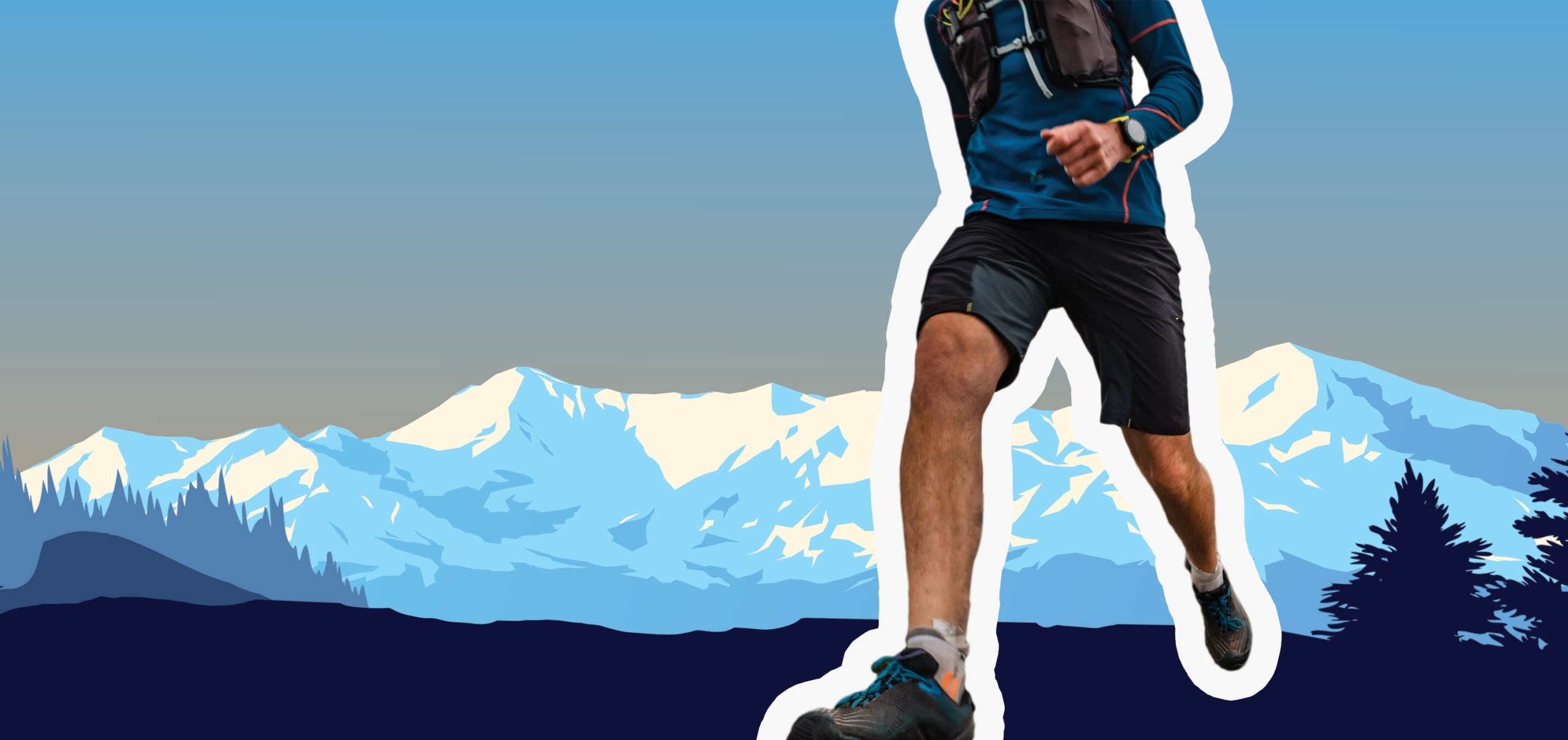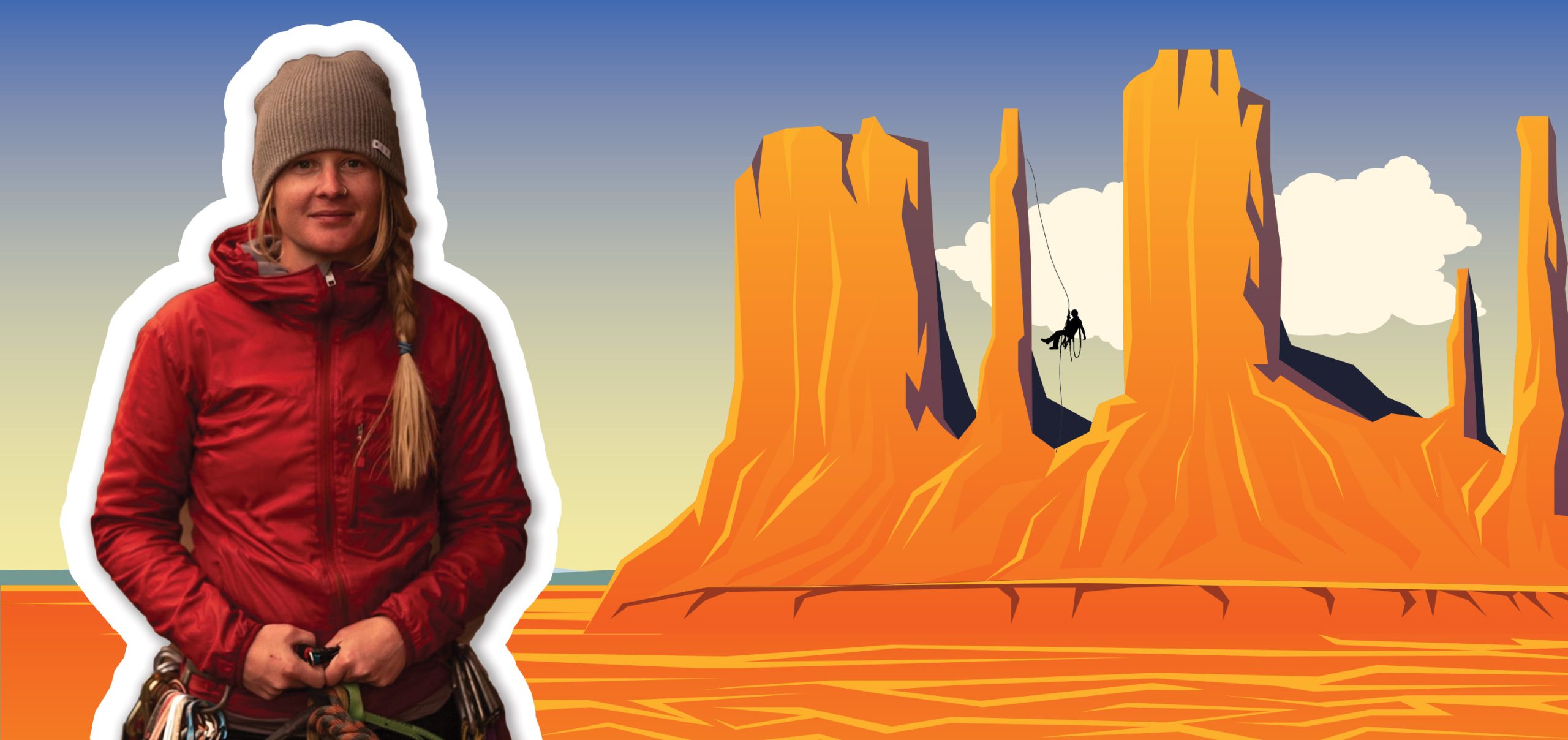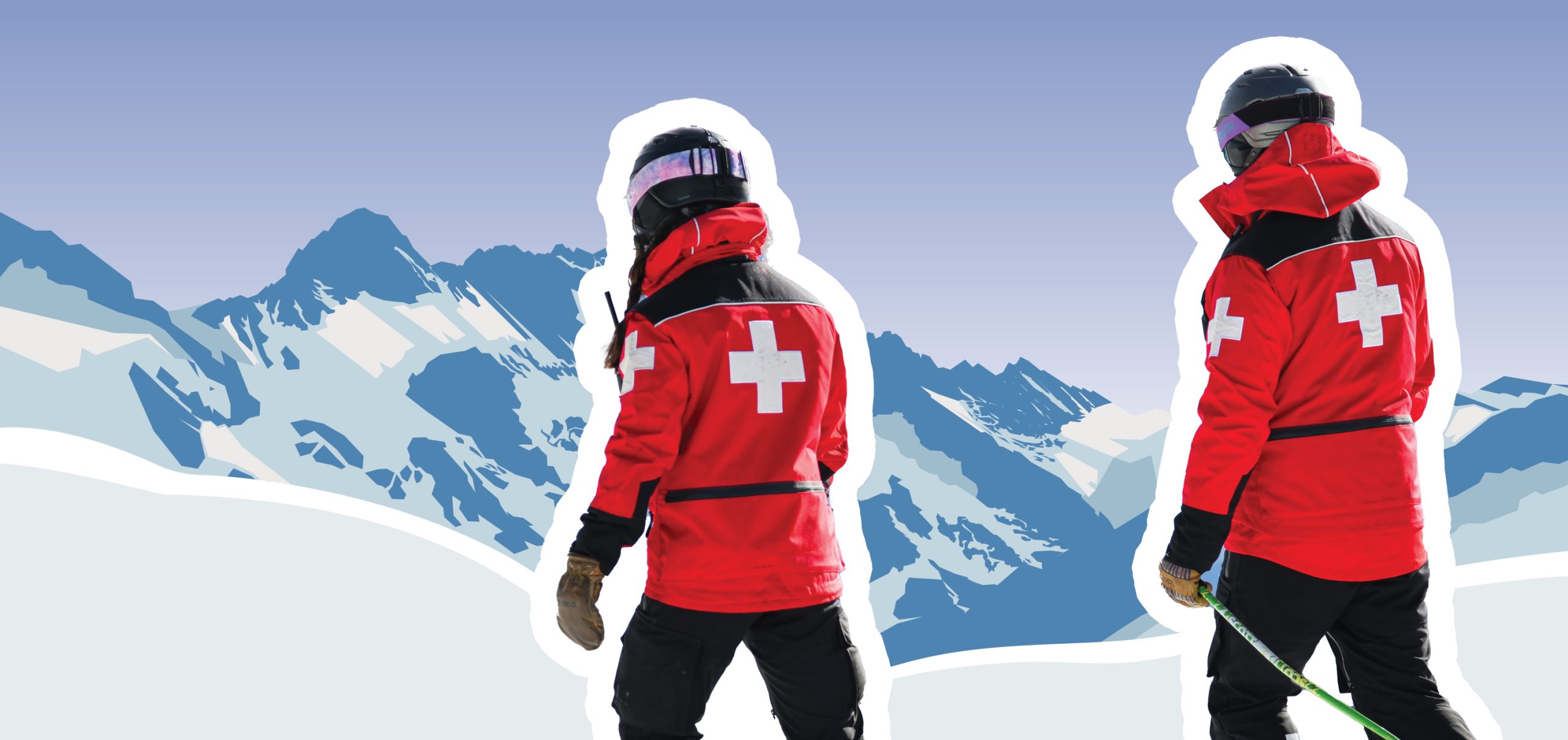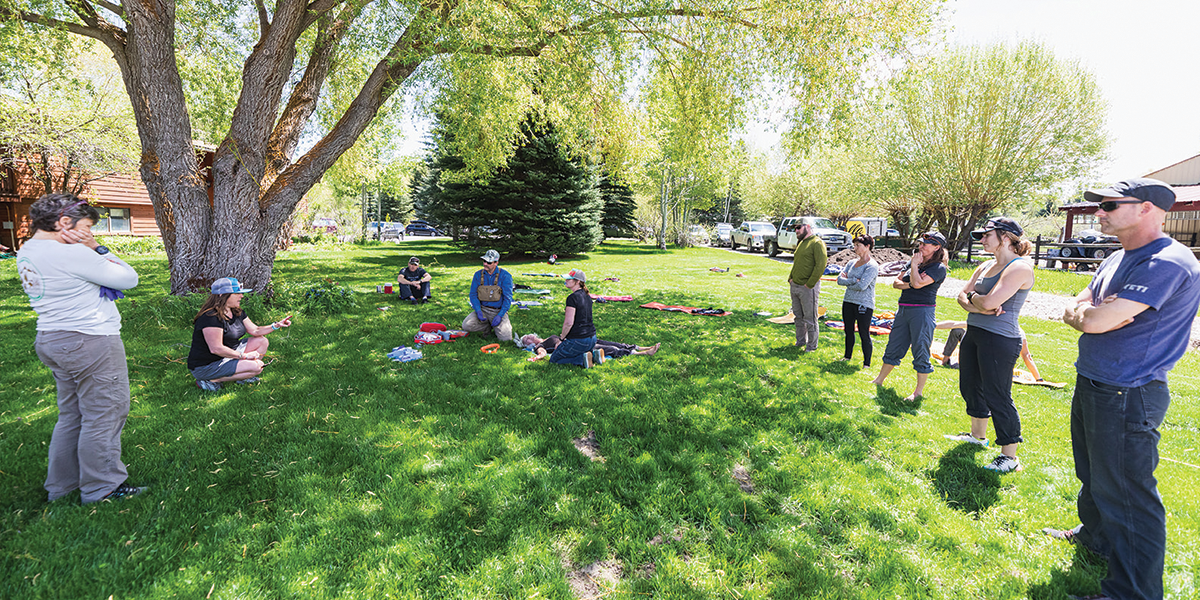If you’re reading this and are someone who spends any amount of time recreating or working in the wilderness, you should take a wilderness medicine course. Lucky for you, I’m going to both tell you why, AND help you decide which course might be the right one for you. Below are the most common wilderness medicine courses offered.
Wilderness First Aid (WFA): This is an excellent introduction to wilderness medicine and geared towards outdoor enthusiasts, camp leaders, raft guides running daily trips and roadside rivers, side-country guides, and land agency staff. This 16-24 hour course usually taught over a 2-3 day period makes it easy enough to squeeze in over the weekend. The average cost of this training is $250.00, which makes it a reasonable option that won’t break the bank. This course will guide you through basic first aid utilizing a hands-on approach. Upon completion, you will walk away with a two-year certification in WFA, CPR, and Wilderness Anaphylaxis Training (WAT).
Wilderness Advanced First Aid (WAFA): If you have more than a weekend’s amount of time and want a more in-depth hands-on course then this is awesome. This course is 40 hours and is perfect for those who might be getting further into the backcountry. This class emphasizes the prevention, recognition, and treatment of illnesses and injuries common to backcountry travel. Upon completion, you will walk away with a three-year WAFA and CPR certification and a two-year Wilderness Anaphylaxis Certification (WAT).
Wilderness First Responder (WFR) or “woofer”: You know that big crux move you have to make to get to the top of the climb? Yeah, and once you’re there the view is amazing? That’s a WFR. If you spend multiple days in the wilderness whether it’s for work or play, this is the course you want. This certification is said to be the standard of care for outdoor professionals, and employers may even pay you more to have it. If you want to walk away from a course with an in-depth knowledge of diverse illnesses and injuries common to backcountry travel and learn through an insane amount of hands-on practice to hone your first responder skills, then go for the WFR. There is no way you will regret it. This 80-hour course is offered in the standard format (8-day intensive), as a hybrid (30 hours online and 5 days in person) or offered over a portion of a semester. Upon completion, you will walk away with a three-year WFR and CPR certification and a two-year Wilderness Anaphylaxis Certification (WAT).
We know that deciding which course to take can be a tough decision. Hopefully, this better outlines what may be best suited for you. The goal is to have the knowledge and skills necessary to save your backcountry buddy if needed.
If you’re still in doubt, consider this: As a backcountry skier, would you and your partner travel without a beacon, shovel, probe, and the knowledge to use that gear? You probably wouldn’t, right? Now, what are you going to do for your partner if you dig them up and they’re not breathing? What if they’re breathing, but unresponsive? Do you know how to figure out what’s wrong with them, get them stabilized, and get them out of the mountains? A course in wilderness medicine and a good first aid kit is the patient care equivalent of avalanche gear and your level 1 avalanche certification. You owe it to your backcountry buddies to know how to take care of them and how to make sure they get home safely. Take a wilderness medicine course. There is no reason not to, and you won’t regret it, trust me.
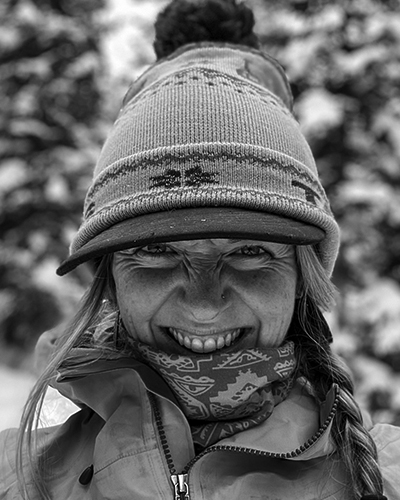
by Morgan Matthews RN, CEN, WFR
To learn more about our instructors CLICK HERE
